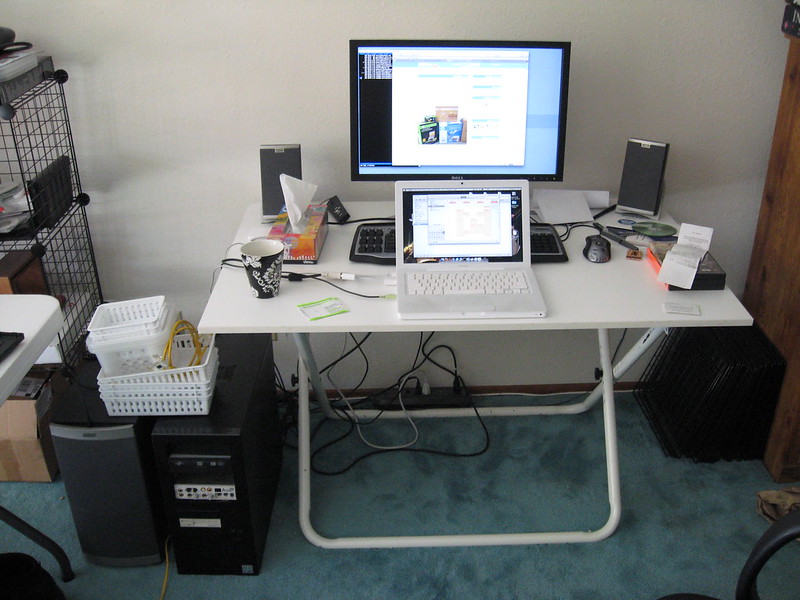Indeed, being a university student amid a global pandemic can be quite challenging. Stress levels can run high. Yet, virtual learning can also be interesting, convenient, and effective.
 Source: Flickr
Source: FlickrSo, here are some useful tips of managing our stress levels so we can get the most out of virtual learning:
1. Take it one day at a time
With all that is going on in the world, it is difficult to sleep peacefully, especially if we or family members , friends, or even co-workers were affected by Covid 19. There are natural remedies that can help with temporary insomnia and or general anxiety. Chamomile, hot baths, long walks, yoga, meditations, physical training, and vitamin supplements such as omega 3, licorice root, valerian root, and vitamin B .
When experiencing anxiety, an immediate remedy is deep breathing. Learning how to properly breath deeply can work wonders. Did you know that taking deep breaths can help you regulate blood pressure and of course help decrease the stress hormone, ‘cortisol’? There are some useful youtube videos that clearly explain and illustrate how to breathe deeply – for instance the youtube channel AskDrJo is one of my favorites.
2. Create a new routine – one that adapts well with your virtual lifestyle
If learning remotely has not changed your weekly schedule, it has certainly changed your learning environment, so try to create a new routine. An important part of your new routine is being realistic about the present. Be aware of your new challenges and adapt to the changes. A useful tip is to write all this down and then, create your new routine. You can begin by planning ways to address all your new challenges – a step by step plan. Find innovative ways of implementing your goals in your virtual lifestyle – this will help you complete activities that were once a part of your standard routine into the new one.
Also, find a sacred work space at home – one that feels comfortable . Then, set it up as a way that it feels like your sacred space. The size of the space is not as important as the feeling that it is yours. Buy a plant or two – get new accessories , add bright colors to your space.
3. Managing time both effectively and efficiently
For most students including their teachers, campus life is greatly missed. Most people miss the social interaction that took place inside and outside the classrooms. Although we are now saving commute time, this change can still be both overwhelming and isolating . So, we now have to impose our own deadlines, and design practical schedules that truly work. Jot down what works and what does not work with your new routine. With what does not work, brainstorm ideas as to how you can make it work – change or alter something in your time management routine. For instance, if running errands in the afternoon is not working out for you, try running errands in the morning. It is all trial and error until we have mastered it.
4. Re-invent your Learning and Peer Support
Whether we are computer savvy or not, online learning is indeed, challenging. There glitzes that take place, equipment that breaks, laptops and ipads that suddenly freeze, etc…
The challenges may vary from one learner to another, but we need to re-invent a new way of learning that is both effective and efficient. Our preferred ways that took place in the classroom may not coincide with our online learning.
Adult learners need flexibility and remote learning gives adults this opportunity. We are able to choose what to learn, when to learn and at what pace to learn it.
The virtual classroom has also given students the opportunity to create their own community. For example, a student who is more knowledgeable in using zoom can help those that are not yet comfortable using zoom. Working collaboratively online may be a new form of learning that may motivate some students more so than if they were in the onsite classroom. Peer to peer support can be the gateway to change.
About the Author:
Anna Panunto is an adult education teacher at The English Montreal School Board and at Mcgill University, School of Continuing Studies. She holds a Bachelor of Arts and a Masters in Education, both at Mcgill University. Anna has been teaching adults for 23 years. She speaks 3 languages: English, French, and Italian and was born and raised in Montreal, Quebec Canada.
